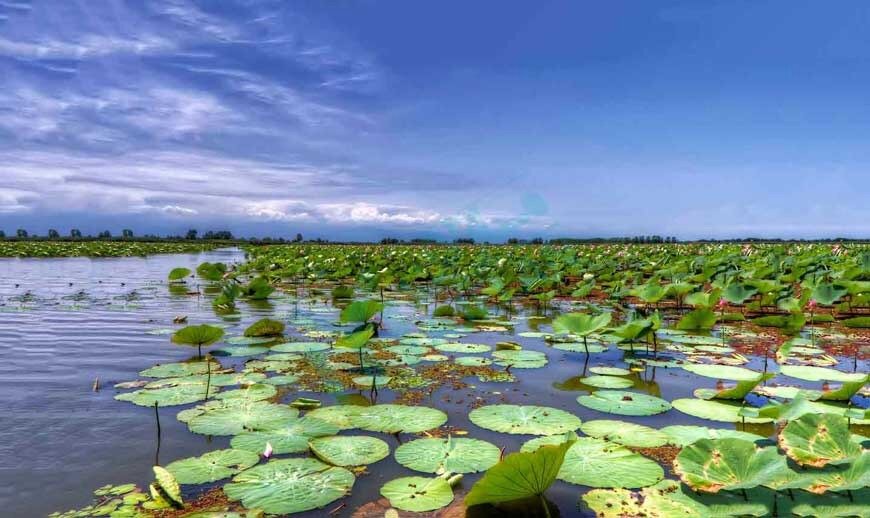Plan to revive 23 wetlands awaiting approval

TEHRAN – A comprehensive plan aiming to rehabilitate 23 wetlands nationwide has been prepared and is waiting to be approved by the national coordination and management headquarters.
Regardless of the drought conditions, the process of rehabilitating the country's wetlands is positive, and consultations continue to ensure the water rights of the wetlands by the Ministry of Energy, IRNA quoted Ahmad Reza Lahijanzadeh, an official with the Department of Environment (DOE), as saying on Friday.
It is necessary for this ministry to have more control over the illegal water withdrawals of rivers, and thus to guarantee the water rights of the wetlands, he noted.
In addition to climate change, some natural disasters have exacerbated the condition of water resources in Iran, climate change had a share of about 10 to 15 percent, and natural disasters about 50 percent; which highlights the need for comprehensive management.
Using the knowledge of satellite images and aerial lasers, in this case, is one of the new measures of the DOE, which was piloted in Gomishan, Miankaleh, and Hourolazim wetlands, and will be conducted on 2 million hectares of wetlands, he explained.
Eight wetlands to join Ramsar Convention
Regarding the possibility of registering the country's wetlands in the Ramsar Convention and improving the support, he stated that “plans have been prepared since the past two years to identify wetlands that meet the registration conditions in this convention.”
In Iran, 141 wetlands with ecological value with an area of over 3 million hectares have been identified. He stated that eight wetlands have been filed to the Ramsar Convention Office in Geneva for review.
Usually, committees are formed and visits are made to the wetlands, but at present, due to the pandemic, the visits will be done by delay, so that efforts are being made to continue the registration process.
Wetlands’ importance
Wetlands are ecosystems saturated with water, either seasonally or permanently. They store water and ensure its quality, providing resilience against drought. They play a central role in sustainable development by supplying all our freshwater. More than 40 percent of freshwater fish are said to live in wetlands.
Wetlands play a major role in protecting the land against floods and the impacts of storms. They provide food and diverse habitats which support genetic, species, and ecosystem biodiversity. Wetlands play a key role in the life cycles of many species and in annual migration patterns.
Iran is rich in terms of having a variety of wetlands due to its climatic diversity. In Iran, 141 wetlands with ecological value with an area of over 3 million hectares have been identified, of which 25 wetlands are designated as wetlands of international importance (registered in the Ramsar Convention) covering more than 1.4 million hectares and four sites are biosphere reserves.
Of Iran’s 25 Ramsar sites about one-third are under pressure or in critical condition.
Unfortunately, wetlands are being degraded and lost due to pollution, overexploitation, climate change, and human population growth.
FB/MG
